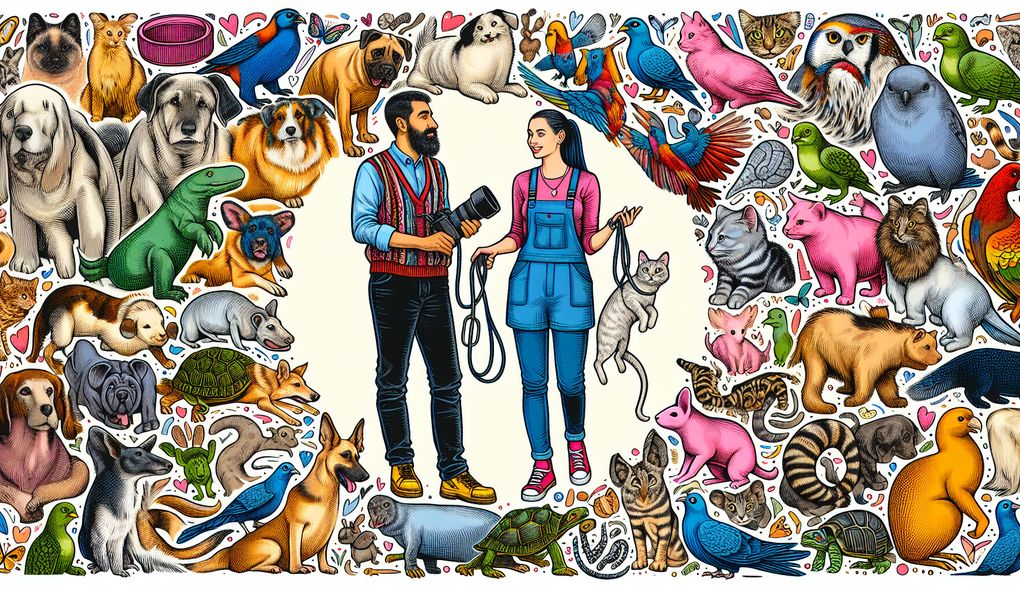What behavior modification tools and techniques are you proficient in?
SENIOR LEVEL

Sample answer to the question:
I am proficient in a range of behavior modification tools and techniques. These include positive reinforcement, desensitization and counter-conditioning, clicker training, shaping, and operant conditioning. I have used these techniques to modify the behavior of various animals, including dogs, cats, horses, and birds. For example, I worked with a dog that had separation anxiety and used desensitization and counter-conditioning to help reduce his anxiety when left alone. I also implemented clicker training when working with a parrot to teach it new tricks. Additionally, I have experience in behavior modification tools such as head halters, harnesses, and puzzle toys to help redirect unwanted behaviors. Overall, my proficiency in these techniques allows me to effectively address different behavioral issues in animals.
Here is a more solid answer:
I have a deep understanding of animal behavior, learning theory, and behavior modification techniques, and I am proficient in using a variety of tools and techniques to modify animal behavior. I have extensive experience working with a wide range of species, including dogs, cats, horses, and birds. For example, I have utilized positive reinforcement, which involves rewarding desired behaviors, to train dogs and teach them new commands. I have also used desensitization and counter-conditioning to help cats overcome fears and phobias. Moreover, I am well-versed in operant conditioning, shaping, and clicker training, which I have successfully applied to modify the behavior of horses and birds. My knowledge and experience in ethology, animal welfare, and behavioral psychology enable me to assess and understand animal behavior accurately. By designing and implementing individualized behavioral modification plans, I have effectively addressed various behavioral issues in different animals. I am also skilled in using behavior modification tools such as head halters, harnesses, and puzzle toys to redirect unwanted behaviors.
Why is this a more solid answer?
The solid answer expands on the basic answer by providing more details about the candidate's expertise, experience working with different species, and their understanding of animal behavior and psychology. The candidate also mentions specific examples of using different behavior modification tools and techniques. However, the answer can still be improved by providing more specific examples of successful behavioral interventions and modifications in a variety of species, as mentioned in the job description.
An example of a exceptional answer:
As a Senior Animal Behaviorist, I bring a wealth of expertise and experience in behavior modification tools and techniques. My deep understanding of animal behavior, learning theory, and psychology allows me to design and implement highly effective behavioral modification plans. I have successfully employed a wide range of tools and techniques, including positive reinforcement, desensitization and counter-conditioning, clicker training, shaping, and operant conditioning, to modify the behavior of diverse species. For instance, I helped a dog with aggression issues using desensitization and counter-conditioning, gradually exposing him to triggers and rewarding calm behavior. I also used clicker training to teach a parrot complex tricks, shaping each behavior step by step. Additionally, my expertise extends to the use of advanced tools such as remote training collars and target sticks. Through my research and collaboration with other experts, I have contributed to the development and refinement of behavior modification techniques. My deep commitment to animal welfare ensures that all interventions are conducted with compassion and respect. Overall, my exceptional proficiency in behavior modification tools and techniques, combined with my extensive experience and dedication to research, make me an ideal candidate for the role of Animal Behaviorist.
Why is this an exceptional answer?
The exceptional answer provides a comprehensive overview of the candidate's expertise and experience in behavior modification tools and techniques. The answer includes specific examples of using different techniques and tools to modify the behavior of diverse species, as well as the candidate's contribution to the refinement of behavior modification techniques through research and collaboration. The answer also highlights the candidate's commitment to animal welfare. The answer could be further improved by incorporating specific examples of successful behavioral interventions and modifications in different species as mentioned in the job description.
How to prepare for this question:
- Familiarize yourself with the principles of animal behavior, learning theory, and behavior modification techniques.
- Gain hands-on experience with a wide range of species and practice applying behavior modification techniques to address different behavioral issues.
- Stay updated with the latest research and advancements in the field of animal behavior.
- Develop strong observational and analytical skills to accurately assess and understand animal behavior.
- Improve your communication skills, particularly in scientific communication, to effectively convey your findings and insights to others.
- Demonstrate a high level of compassion and understanding for animal welfare issues in your approach to behavior modification.
What are interviewers evaluating with this question?
- Expert knowledge of animal behavior and learning theory
- Proficiency in behavior modification techniques
- Experience working with a variety of species
- Deep understanding of ethology, animal welfare, and behavioral psychology

